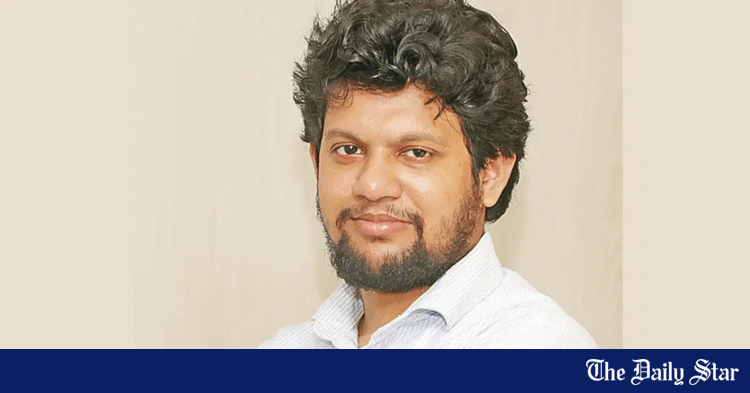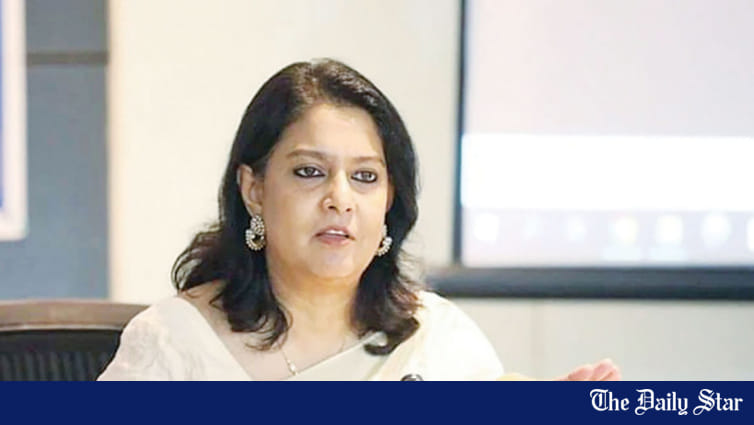Saif
Senior Member
- Joined
- Jan 24, 2024
- Messages
- 16,529
- Likes
- 8,140
- Nation

- Residence

- Axis Group


Tension mounts among govt officers over reform
Administration cadre officials and other cadres are now facing off over the public administration reforms aimed at freeing the civil service from political influence and inter-cadre discrimination and making it more service-oriented.
 www.newagebd.net
www.newagebd.net
Tension mounts among govt officers over reform
Sadiqur Rahman 25 December, 2024, 23:54

Bangladesh Administrative Service Association and the BCS Administration Welfare Multipurpose Cooperative Society Limited hold a meeting, protesting at the reform of public administration, at the BIAM Foundation Auditorium in Dhaka on Wednesday. | New Age photo
Administration cadre officials and other cadres are now facing off over the public administration reforms aimed at freeing the civil service from political influence and inter-cadre discrimination and making it more service-oriented.
Officials belonging to 25 Bangladesh Civil Service cadres other than the administration cadre have long been pressing for eliminating the discrimination against them regarding promotions and in-service facilities.
The administration cadre officials, meanwhile on Wednesday, announced that they would submit a memorandum to the public administration reform commission today, intensifying the tension in the civil service over its reform as officials of other cadres are scheduled to hold human chains across the country, protesting at what they termed as dominance of the administration cadre in the civil service jobs.
Since the Public Administration Reform Commission disclosed its draft recommendations on December 17, civil servants under the administration cadre and the rest 25 cadres have faced off against each other, claiming their fair shares in the administrative services.
Public administration teacher at Dhaka University, Professor Ferdous Afrina Osman, called the ongoing tension in the civil service as frustrating and observed that dominance of a single cadre was discriminatory.
Saying that promotion in the civil service must be free from political influences, she told New Age that the only way to keep promotion free from political influence was a proper evaluation of the candidates.
‘Only the deserving civil service officials irrespective of the cadre should get promotion,’ she added.
On December 17, the reform commission said for promotion to the rank of deputy secretary it would recommend 50 per cent quota allocation for the administration cadre and 50 per cent for the rest of the 25 cadres.
Currently, for promotion to this rank, the administration cadre enjoys 75 per cent quota and the rest 25 cadres get 25 per cent quota.
The disclosure of the draft recommendations have stirred up discontent among both the administration and other cadres, leading to increased tension among the administration cadre officials and those of other cadres. The administration cadre officials fear that the recommendations, if accepted, will reduce their promotion quota, while officials under the rest 25 cadres think that the recommendations fail to reflect their demand for a merit-based administrative service.
On Wednesday, several hundred present and former officials of the administrative cadre assembled at the BIAM Foundation Auditorium in the capital in a meeting in protest at the commission’s reform proposal. It was jointly organised by the Bangladesh Administrative Service Association and the BCS (Administration) Welfare Multipurpose Cooperative Society Limited.
After the meeting, the officials announced that they would submit a memorandum to the public administration reform commission today, administrative service association member secretary Muhammad Mahbubur Rahman confirmed the matter.
Speakers at the meeting complained that narrowing representation from the administration cadre was a conspiracy to destabilise the country by misdirecting public administration reforms.
Some of the speakers also demanded the resignation of the reform commission chief within 48 hours starting from Wednesday afternoon.
They said that narrowing the administration cadre’s representation would be a violation of a government circular, published on February 10, 1998, which was endorsed by the High Court as legal on February 13, 2002.
Moreover, they termed the application of the quota system in promotion to the deputy secretary rank as a discriminatory practice.
Dhaka district deputy commissioner Tanvir Ahmed told New Age that the administration cadre officials now demanded that the reform commission should recommend the abolition of the quota system and establish the Bangladesh Administrative Service exclusively with the administration cadre officials.
Asked how the civil servants from other cadres would get their promotion of the other cadre officials, Tanvir Ahmed said, ‘Their ranks must be upgraded as per the respective departmental promotion ladders.’
Earlier, on Sunday also, a significant number of administration cadre officials gathered at the Secretariat to press their demand.
On Tuesday, members of the Inter-Cadre Council to Eliminate Discrimination, a platform representing officials from 25 BCS cadres other than administration, staged a protest through a one-hour ‘pen-down strike’ to protest against the administration cadre’s dominance.
The council’s coordinator, Mohammad Mofizur Rahman, told New Age that officials of the 25 cadres would hold a human chain in front of their offices today.
The council is also scheduled to hold a rally in Dhaka on January 4 and has also announced further programmes, Mofizur said.
Sadiqur Rahman 25 December, 2024, 23:54
Bangladesh Administrative Service Association and the BCS Administration Welfare Multipurpose Cooperative Society Limited hold a meeting, protesting at the reform of public administration, at the BIAM Foundation Auditorium in Dhaka on Wednesday. | New Age photo
Administration cadre officials and other cadres are now facing off over the public administration reforms aimed at freeing the civil service from political influence and inter-cadre discrimination and making it more service-oriented.
Officials belonging to 25 Bangladesh Civil Service cadres other than the administration cadre have long been pressing for eliminating the discrimination against them regarding promotions and in-service facilities.
The administration cadre officials, meanwhile on Wednesday, announced that they would submit a memorandum to the public administration reform commission today, intensifying the tension in the civil service over its reform as officials of other cadres are scheduled to hold human chains across the country, protesting at what they termed as dominance of the administration cadre in the civil service jobs.
Since the Public Administration Reform Commission disclosed its draft recommendations on December 17, civil servants under the administration cadre and the rest 25 cadres have faced off against each other, claiming their fair shares in the administrative services.
Public administration teacher at Dhaka University, Professor Ferdous Afrina Osman, called the ongoing tension in the civil service as frustrating and observed that dominance of a single cadre was discriminatory.
Saying that promotion in the civil service must be free from political influences, she told New Age that the only way to keep promotion free from political influence was a proper evaluation of the candidates.
‘Only the deserving civil service officials irrespective of the cadre should get promotion,’ she added.
On December 17, the reform commission said for promotion to the rank of deputy secretary it would recommend 50 per cent quota allocation for the administration cadre and 50 per cent for the rest of the 25 cadres.
Currently, for promotion to this rank, the administration cadre enjoys 75 per cent quota and the rest 25 cadres get 25 per cent quota.
The disclosure of the draft recommendations have stirred up discontent among both the administration and other cadres, leading to increased tension among the administration cadre officials and those of other cadres. The administration cadre officials fear that the recommendations, if accepted, will reduce their promotion quota, while officials under the rest 25 cadres think that the recommendations fail to reflect their demand for a merit-based administrative service.
On Wednesday, several hundred present and former officials of the administrative cadre assembled at the BIAM Foundation Auditorium in the capital in a meeting in protest at the commission’s reform proposal. It was jointly organised by the Bangladesh Administrative Service Association and the BCS (Administration) Welfare Multipurpose Cooperative Society Limited.
After the meeting, the officials announced that they would submit a memorandum to the public administration reform commission today, administrative service association member secretary Muhammad Mahbubur Rahman confirmed the matter.
Speakers at the meeting complained that narrowing representation from the administration cadre was a conspiracy to destabilise the country by misdirecting public administration reforms.
Some of the speakers also demanded the resignation of the reform commission chief within 48 hours starting from Wednesday afternoon.
They said that narrowing the administration cadre’s representation would be a violation of a government circular, published on February 10, 1998, which was endorsed by the High Court as legal on February 13, 2002.
Moreover, they termed the application of the quota system in promotion to the deputy secretary rank as a discriminatory practice.
Dhaka district deputy commissioner Tanvir Ahmed told New Age that the administration cadre officials now demanded that the reform commission should recommend the abolition of the quota system and establish the Bangladesh Administrative Service exclusively with the administration cadre officials.
Asked how the civil servants from other cadres would get their promotion of the other cadre officials, Tanvir Ahmed said, ‘Their ranks must be upgraded as per the respective departmental promotion ladders.’
Earlier, on Sunday also, a significant number of administration cadre officials gathered at the Secretariat to press their demand.
On Tuesday, members of the Inter-Cadre Council to Eliminate Discrimination, a platform representing officials from 25 BCS cadres other than administration, staged a protest through a one-hour ‘pen-down strike’ to protest against the administration cadre’s dominance.
The council’s coordinator, Mohammad Mofizur Rahman, told New Age that officials of the 25 cadres would hold a human chain in front of their offices today.
The council is also scheduled to hold a rally in Dhaka on January 4 and has also announced further programmes, Mofizur said.




































